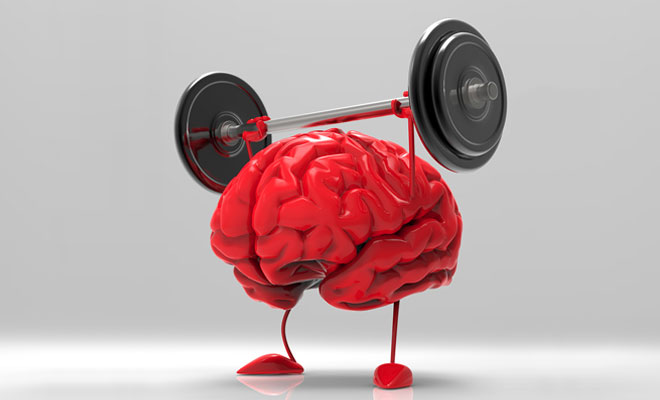
Brain Fit
5 Secret weapons for getting your child brain fit this year.
1. Protein is brain food
Even though the brain’s main source of fuel is glucose and the quality of your teenager’s concentration, memory and mental stamina is sensitive to the fluctuations of glucose in the blood, protein is actually the secret weapon for your teenager’s excellent brain function. In digestion and metabolism, protein acts as a stabiliser to the blood glucose levels so that steady blood glucose levels are the norm, rather than highs and lows which tend to de-stabilise brain function.
Your teenager’s brain fit advantage is assured when they eat ¼ cup of a mix of protein sources, four times per day. EVERY DAY.
2. Omega 3 fish oil
The Omega 3 fatty acids are EPA and DHA. They are considered ‘essential’ fatty acids because they are essential to the wellbeing of the human body and we cannot make it in our bodies, therefore we need to get them from our food or supplements. Healthy brains contain high amounts of the omega 3 fatty acid DHA. DHA makes up about 50% of brain tissue and even more of eye tissue. DHA is important in memory, transmission of the signals in your brain so that you have optimal cognitive function.
Your teenager’s brain fit advantage is assured when they take a DHA rich fish oil supplement like Blackmores ‘Omega Brain’, Nature’s Way ‘Kids Smart’.
3. Generalising and Procrastination
Listen out for blanket statements such as ‘every time, all the time, always’ as they give an insight to your teenagers perception and big chunk – generalised thinking and processing style. A processing style is an expression of how we explain things and make sense of things. If your teenager regularly uses blanket statements they are more susceptible to feel overwhelmed about life events, study assignments and people dynamics . They might feel they can’t effect change or feel they do not know how or where to start..procrastination can be the end result.
Your teenager’s brain fit advantage is in encouraging them to recognise that things or people aren’t like that EVERY TIME or ALL THE TIME, it’s impossible! Interrupt their conversation and challenge them to break down their commentary into specifics such as this person, at this time. Your teenager will learn the finer distinctions of interpreting life ‘in that moment’. Guide them to break their study assignment into steps and stages then break those steps and stages into several sub-steps. Your teenager will come away feeling enabled and with a plan.
4. Mitigating anxiety and coming into the present
In stress, the right brain goes into ‘dimmer mode’ limiting our access to creative solutions to the situation, then the frontal lobe goes into ‘dimmer mode’ and takes us out of present time. This leaves us stuck in the back left quadrant of the brain where past memories sit and so does the emotion fear.
My kinesiologist taught me a technique which she refers to as ‘head hold and breathe’ but is officially called ‘Frontal occipital hold’. What this technique does is re-activate the communication between the left and right , top and bottom, back and front of the brain. , creating a whole brain response, facilitating focus, calm, clarity and bringing us into present time.
Either sitting, standing or lying down, have them place their right hand across their forehead between their eyebrows and hairline. Place their left hand on the back of their head across the bump on their skull at the point just before their skull descends into their neck. Ask them to take a slow deep belly breath in, to the count of 4, hold for the count of 2, exhale slowly sucking in their belly button to the count of 4 and hold for 2. Repeat 9 times.
Your teenager’s brain fit advantage is to perform the ‘head hold and breathe’ practise every time they sit down to tend to their studies and at bedtime. It will support them to settle, focus and become calm.
5. Discounting and Motivation
Adolescence is a phase of growing up and inherent within that is the process of learning and developing. Many teenagers are developmentally at the stage of discovering who they are and what they are and aren’t good at. Many are keen to elicit some sort of ‘wow’ response from their peers, be it by being popular, being good at sport, academics, art, drama etc.. Many also have an expectation that they achieve, learn and get it right the first time every time, which is of course, often unrealistic. Listen out for statements such as “that doesn’t count,” “That’s not good enough,” “That’s nothing” as it may suggest an attitude of rejecting , dis-qualifying, putting down possible progress, success, possibilities and solutions. Unchecked, the outcome of this negative thinking style is that it can be very de-motivating and dis-empowering. Sometimes the teenager who is a discounter is also a generaliser (see point 3.) Together they can begin to create the structure of a perfectionistic attitude.
Your teenager’s brain fit advantage is assured in challenging them to recognise, acknowledge, count and celebrate the incremental and small steps in their endeavours.








1 Comment